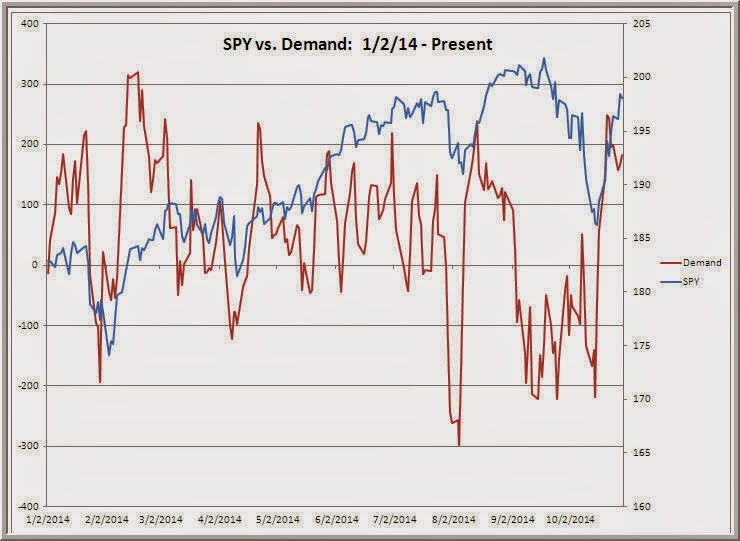TraderFeed Why Every Trader Should Be An Investor
Post on: 29 Март, 2015 No Comment

Monday, April 21, 2008
Why Every Trader Should Be An Investor
I find two things striking about a large number of active traders:
1) They’re not prepared for failure — If trading doesn’t work out for them, they don’t have clear backup plans (and trading doesn’t naturally lead to other careers);
2) They’re not prepared for success — If trading does work out for them, how will they accumulate wealth over time and ensure their financial future?
In some ways, the latter problem is just as acute as the first. Making money, holding onto money, and accumulating wealth are very different things. Just because traders make money doesn’t mean they know how to deploy that money wisely to build wealth. Indeed, I’ve seen many sad outcomes among those who have retained a trading mindset with respect to financial planning.
If traders are going to build a financial future, they need to think like investors. And that’s not easy to do, when all your financial decision-making has been on the short term.
Fortunately, there are some valuable resources available to help traders make the transition to becoming personal money managers. Here are a few that have come to my attention of late:
1) The Disciplined Investor by Andrew Horowitz — This very accessible book is excellent for those needing an investment primer. Horowitz doesn’t cover the full gamut of financial planning (insurance, estate planning, wills), but rather focuses on the range of wealth enhancement and wealth preservation opportunities via stock market investing, mutual funds, and annuities. He begins with creating a discipline, offers background on quantitative, technical, and fundamental investment strategies, and launches into important material on risk management. It’s clearly written and not at all intimidating for investment newbies. Andrew also maintains a blog and conducts frequent podcasts on investment themes.
2) Create Your Own ETF Hedge Fund by David Fry — This is a valuable introduction to the world of exchange-traded funds (ETFs), which are rapidly putting a variety of investment options—from bonds to stocks to currencies and commodities—in the hands of traders. Fry is the founder of the ETF Digest site. which tracks various ETF portfolios and includes weekly podcasts related to investment in ETFs. Fry’s central thesis is that individual investors can replicate common and successful hedge fund strategies, from long/short equities to profiting from global macro themes. At the end of the book, he offers sample portfolios designed to meet a variety of investor needs. The book is very practical and quite clearly written.
3) The ETF Book by Richard A. Ferri — Ferri’s book is a detailed look at the exchange-traded fund universe, covering various styles and choices among ETFs and then examining portfolio management options for ETF investors. A particularly worthwhile segment of the text applies different ETF strategies to investors in various phases of their life cycle. Ferri covers both passive and active portfolio strategies and offers clear, illustrative sample portfolios. If you’re ever wondering which ETFs are available for particular kinds of investment, this book pretty well covers the gamut in a way that is not overly technical. Ferri has also written on asset allocation —an extremely important theme among investors.
What are some general lessons from these books that traders can draw upon in becoming more astute investors? These come to mind:
* You can’t invest what you don’t save — An investment plan starts with a cogent savings plan.
* Know your objectives — It’s important to get a return on your capital, and it’s important to ensure the return *of* your capital. Your investment strategy should be tailored to your risk tolerance, and that should reflect where you’re at with respect to child bearing, retirement, etc.
* Know your alternatives — With a vast array of mutual funds, annuities, and exchange-traded funds, there are many ways of investing nationally, internationally, in stocks, and in other asset classes.
* Diversify, diversify, diversify — Even the greatest investments (think residential real estate of the last decade, or equities in China) can lose money quickly. Placing eggs in many baskets and ensuring that those baskets are not highly correlated in returns produces superior risk-adjusted returns over time.
You work for your profits; it’s important to ensure that they work for you. The average savings rate in the U.S. has recently become negative ; people are spending more than they earn. They have assumed that the rising values of their homes would fund their retirements. With the recent housing decline, that assumption will be called into question for quite a few of those folks. For them, retirement is a potential train wreck on the horizon.
That doesn’t have to be you. Saving money and making it work for you in a carefully planned manner can ensure that earnings today become tomorrow’s wealth of a lifetime.














